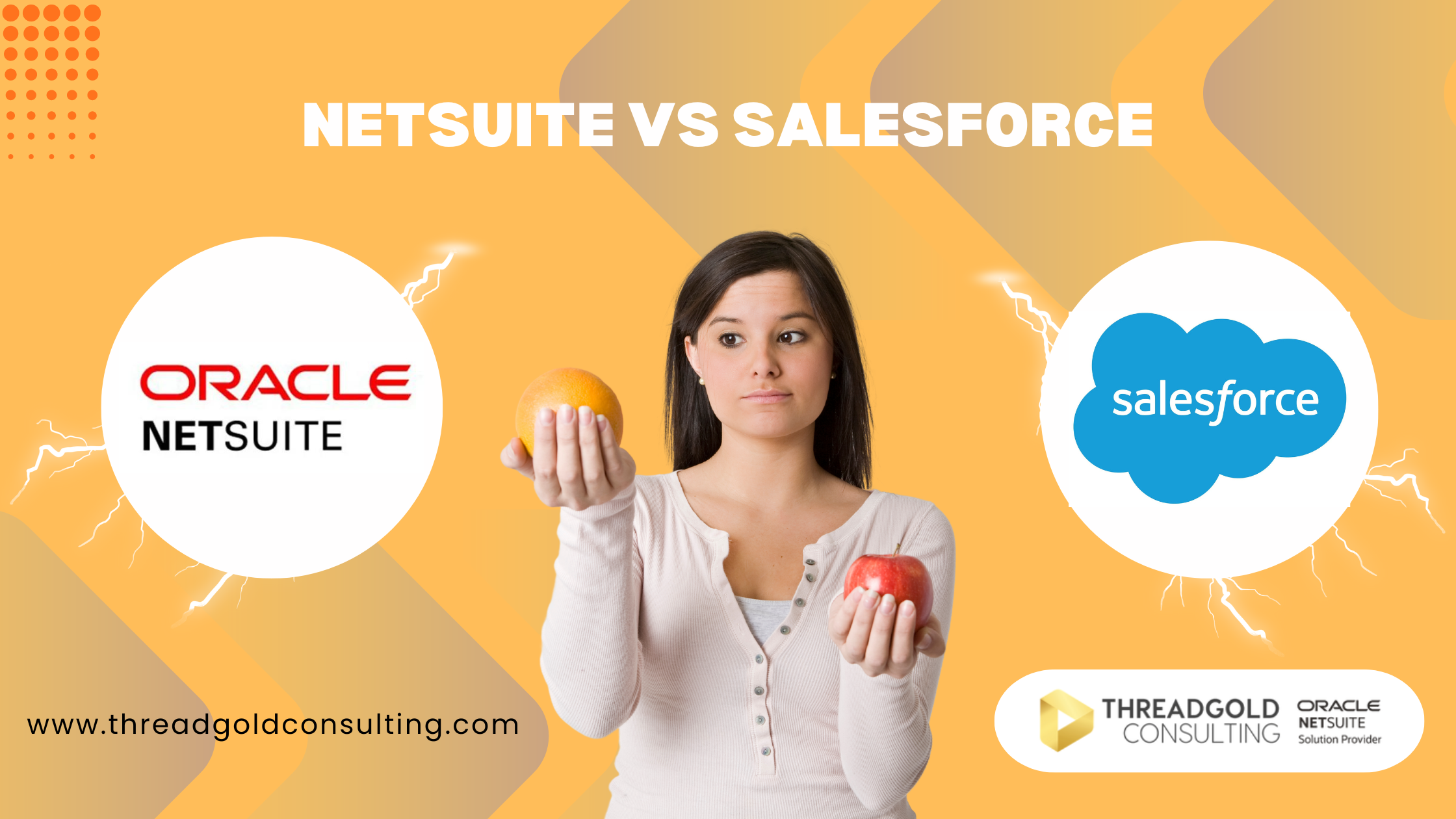Did you know that implementing an effective CRM solution can increase sales by 29%? Maintaining strong and close relationships with customers, and being able to track all communications, is essential for business success. Choosing the right customer relationship management (CRM) solution can therefore be the difference between sinking or swimming.
Among the top contenders in this arena are Oracle NetSuite and Salesforce, two powerful platforms designed to streamline operations and enhance customer relationships. In this blog post, we'll explore the key benefits of each, followed by a detailed examination of their differences.
Key Benefits of Oracle NetSuite
Oracle NetSuite is a comprehensive cloud-based ERP solution that offers everything from CRM, to project management, to warehouse management. It allows companies to manage every aspect of their business from one platform. It is ideal for companies looking for an all in one solution that can be customised to their unique business needs. It can be pricey, but this is because you are getting such a powerful platform.
- Integrated Business Suite: Oracle NetSuite offers a comprehensive, cloud-based business suite that seamlessly integrates various functions, including ERP, CRM, and e-commerce. This unified platform provides a holistic view of your business operations, fostering better decision-making and effective reporting.
- Scalability and Flexibility: NetSuite is renowned for its scalability, making it suitable for businesses of all sizes. Whether you're a startup or an enterprise-level organization, NetSuite can adapt to your evolving needs and grow alongside your business.
- Real-time Analytics and Reporting: NetSuite's analytics and reporting tools empower users with real-time insights into their business performance. Customizable dashboards and robust reporting capabilities enable data-driven decision-making at every level of the organization.
- Global Business Management: With multi-language and multi-currency support, NetSuite is an ideal solution for businesses operating on a global scale. It facilitates seamless collaboration and standardizes processes across different regions.
Key Benefits of Salesforce
Salesforce is a best of breed, pure CRM. It specialises in providing it's customers with stress-free and easy solution that manages everything from email lists, to outreach, to data analysis. It can integrate with many websites and ERPs, making it a great fit for organisations who are looking for a comprehensive CRM solution.
- Customer-Centric Approach: Salesforce is renowned for its customer-centric approach, offering a suite of tools dedicated to enhancing customer relationships. The CRM functionality is particularly strong, allowing businesses to personalise interactions and build lasting connections with their clients.
- AppExchange Ecosystem: Salesforce's AppExchange is a vast marketplace offering a wide array of third-party applications. This allows businesses and Salesforce admins to extend the platform's capabilities and tailor it to their specific needs without extensive customization.
- Automation and AI-driven Insights: Salesforce leverages advanced automation and artificial intelligence (AI) capabilities to streamline processes and provide valuable insights. This enhances efficiency and enables businesses to proactively address customer needs.
- Community Collaboration: Salesforce's community features facilitate collaboration among employees, partners, and customers. This fosters a sense of community, encourages knowledge sharing, and contributes to improved business outcomes.
Detailed Comparison
Now we will take a look at how to two systems compare in several key areas.
Integration and Suite Approach:- NetSuite: Offers a fully integrated suite covering ERP, CRM, and e-commerce.
- Salesforce: Primarily known for its CRM functionality, with additional features available through the AppExchange ecosystem.
- NetSuite: Designed to scale with businesses of all sizes, offering flexibility in adapting to changing requirements.
- Salesforce: Known for its scalability, especially with the flexibility provided by AppExchange applications.
- NetSuite: Emphasizes an all-encompassing suite for comprehensive business management.
- Salesforce: Primarily focuses on customer relationship management, with additional functionalities available through integrations.
- NetSuite: Strong global capabilities with support for multiple languages and currencies.
- Salesforce: Global functionality, but may require additional integrations for comprehensive international operations.
Pricing:
- NetSuite: A high end product based on a yearly license subscription. Prices depend on modules and users, so you can scale up or down depending on your business needs. Check out our comprehensive pricing guide for more information on NetSuite pricing,
- Salesforce: A mid range product mostly based on number of users. Check out this guide on Salesforce pricing for more information.
Conclusion
In the Oracle NetSuite vs. Salesforce showdown, the choice ultimately depends on your business's unique needs and priorities. NetSuite excels in providing a unified suite for comprehensive business management. If you're looking to integrate your CRM solution with your entire busiess, then NetSuite is the one for you.
Whereas Salesforce shines with its customer-centric approach and robust CRM capabilities. If you're just looking for a comprehensive CRM solution that you can integrate with your other business systems, then Salesforce will be the better fit. It's important to carefully evaluate your requirements, growth plans, and budget constraints to make an informed decision that aligns with your organizational goals.




.png)
.webp)